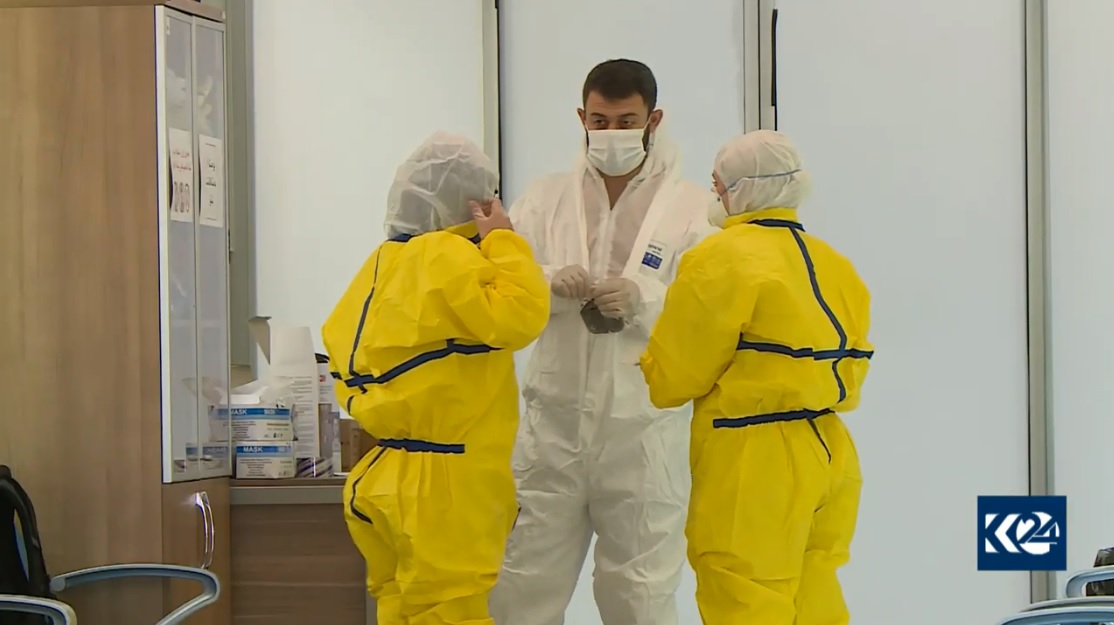COVID-19: Kurdistan Region announces highest daily cases of 2021, warns of Delta variant
Despite the current rollout of a regional vaccination program, officials stressed that public vigilance such as wearing masks and social distancing was still of utmost importance.

ERBIL (Kurdistan 24) – Amid a global uptick in new coronavirus cases in the autonomous Kurdistan Region’s Ministry of Health announced on Monday that it had recorded the highest daily rate of daily infections in the seven months since 2021 began.
In a statement, the ministry reported 1,368 new cases of the highly contagious disease and four deaths during the previous 24 hours.
Health officials used the occasion to continue warnings that, despite the current rollout of a regional vaccination program, public vigilance regarding health practices such as wearing masks and social distancing was still of utmost importance.
"It is true that getting the vaccine is crucial, but it does not replace the importance of preventive measures that will keep the spread of the virus from reaching a dangerous phase in the community," said Health Ministry Spokesperson Aso Hawezy in a statement.
According to the Kurdistan Regional Government (KRG), the total number of people so far infected with the virus numbers nearly 197,000, with over 4,500 of them proving fatal.
Read More: COVID-19: Plans for new vaccination card as Kurdistan Region reaches 4,500 total deaths
WHO Director-General Tedros Adhanom Ghebreyesus said in a briefing "The Delta variant is ripping around the world at a scorching pace, driving a new spike in COVID-19 cases and death," noting that the highly contagious variant, first detected in India, had now been found in more than 104 countries.
"Last week marked the fourth consecutive week of increasing cases of COVID-19 globally," Tedros said at a virtual press conference from Geneva, adding that "after ten weeks of declines, deaths are increasing again."
Read More: Iraq extends partial curfew amid uptick in new COVID-19 cases
Hawezy, the Kurdistan Region official, addressed the Delta variant as well, saying, "We can prevent it from spreading by the same means we prevented the other strains.”
The coronavirus has infected nearly 187.8 million people worldwide and killed more than four million, according to Johns Hopkins University’s database. The actual figures could be dramatically higher due to insufficient testing capabilities or underreporting.
Editing by John J. Catherine